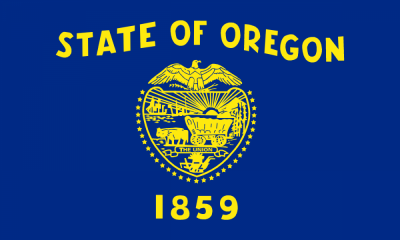Oregon

Oregon recognizes a right to privacy and has indicated both that a person has a property right in his name and likeness and also that the right to privacy protects against the unauthorized use of one’s name or likeness. The Oregon Supreme Court has also suggested that individuals with commercially valuable identities may also have a “right to publicity.”
Statute
NO.
Common Law - Right of Publicity
LIKELY YES
The Oregon Supreme Court has suggested that if a person with an economically valuable identity has her name or image used for commercial purposes there is a cause of action. The Second Circuit has presumed that Oregon would recognize such a right.
Anderson v. Fisher Broad. Co., 712 P.2d 803 (Or. 1986)
Hinish v. Meier & Frank Co., 113 P.2d 438 (Or. 1941)
Rogers v. Grimaldi, 875 F.2d 994 (2d Cir. 1989).
Common Law - Right of Privacy-Appropriation Tort
YES
Oregon has adopted a right to privacy and has included the appropriation branch of that tort in its enumeration of the rights contained in the right to privacy. A 1986 decision by the Supreme Court of Oregon appears to narrow this common law right to privacy, and suggests concerns with allowing a tort based on the disclosure of truthful, but private facts. In the context of a misappropriation claim, the Court suggested that the unauthorized use of another’s name or likeness is only actionable if there is a false implication of endorsement, the plaintiff’s name or image has an independent economic value, the defendant is unjustly enriched, or the image was obtained unlawfully.
This seems to contradict the earlier decision in Hinish that suggested that private citizens like Roberson and Pavesich, in those famous cases from New York and Georgia should have had a cause of action.
Anderson v. Fisher Broadcasting Co., 712 P.2d 803 (Or. 1986)
Hinish v. Meier & Frank Co., 113 P.2d 438 (Or. 1941)
Mauri v. Smith, 929 P.2d 307 (Or. 1996)
Post-Mortem Right
No case has considered the question.
Limits on Right
Does the law require the plaintiff or identity-holder to be a celebrity or have a commercially valuable identity?
UNCLEAR
The Oregon Supreme Court has suggested that the right of publicity claim only applies to those with independently valuable personalities, but an earlier decision that has not been overruled concludes otherwise.
Anderson v. Fisher Broadcasting Co., 712 P.2d 803 (Or. 1986)
Hinish v. Meier & Frank Co., 113 P.2d 438 (Or. 1941)
Does the law protect persona?
UNCLEAR
Is Liability Limited to Uses on Commercial Advertising or Commercial Speech?
UNCLEAR
The Oregon Supreme Court has suggested some skepticism about using commerciality as a dividing line, but has allowed for the possibility that uses in which a defendant is unjustly enriched may be actionable. Mere use for profit is not enough.
Anderson v. Fisher Broadcasting Co., 712 P.2d 803 (Or. 1986)
First Amendment Analysis
The Oregon Supreme Court has approved a newsworthiness defense, but has suggested that speech concerns must go beyond this defense to protect most truthful uses of another’s identity or private facts.
Anderson v. Fisher Broadcasting Co., 712 P.2d 803 (Or. 1986)
Oregon sits in the Ninth Circuit which has had occasion to consider the interaction between the First Amendment and the right of publicity under California law. The Ninth Circuit has adopted a variety of tests for assessing First Amendment tests in such instances, including California’s transformative use test, and a broader balancing approach.
In re NCAA Student-Athlete Litigation, 724 F.3d 1268 (9th Cir. 2013)
Hoffman v. Capital Cities/ABC, Inc., 255 F.3d 1180 (9th Cir. 2001)
Although Oregon is in the Ninth Circuit, the Second Circuit has considered a claim under Oregon’s right of publicity law in the context of an expressive work, and concluded that uses of others’ names are protected by the First Amendment in such instances unless the use is “wholly unrelated” or “simply a disguised commercial advertisement for the sale of goods or services.”
Rogers v. Grimaldi, 875 F.2d 994 (2d Cir. 1989)
Other Commentary
Oregon courts have explicitly rejected differential treatment of images and words in the context of misappropriation claims.
Anderson v. Fisher Broadcasting Co., 712 P.2d 803 (Or. 1986)
